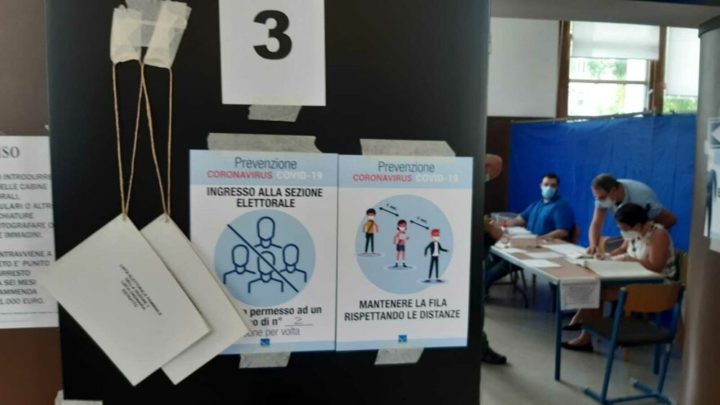The Italian elections (a referendum, regional and administrative elections) have, as usual, upset the predictions of the pollsters who had given overwhelming victories to the center-right in an anti- government sense.
What happened is exactly the opposite: despite the evident irrationality and incompleteness of a constitutional reform that simply cuts parliamentarians without further corrections of any kind, the Yes to the reform passed by a large majority but it seemed more a yes to the PD-5 Star government than to the reform itself. As for the regions, we can note that in all the cases in which the outgoing governor ran again for office, he was elected. In addition, we are talking about people who are very different from each other but similar in the very precise and firm management of the pandemic: Zaia, a member of the Lega Nord party, beat the record for the most voted candidate (over 70%) with his image of a man in shirt sleeves, always in press conference that stopped the Covid with clever moves; Emiliano, Democratic Party, is the one who stopped all the Milanese fleeing from Lombardy at the Bari Central Station and quarantining them; De Luca, Matteo Salvini’s extroverted enemy, has an iron fist in keeping the virus away from Campania that everyone considered very vulnerable; Toti, Forza Italia, central figure of the reconstruction in Genoa after the collapse of the Morandi Bridge. All media personalities capable of reassuring the average Italian, definitely stressed by the pandemic. And also Giani, Democratic Party, a new candidate who has maintained the historical dominance of the left wing in Tuscany, has perfectly presented himself as representative of continuity with the classic theme of the “vote that is necessary to beat the right-wing”.
Should he have won the protest? Salvini, head of Lega Nord (cleverly removed the word “Nord” from the newspapers but not from the official name) did his utmost to play the part of the opponent but it went badly for him, surpassed by Giorgia Meloni, a passionate and competent woman who could be, after these elections, a possible new leader of the right-wing. The 5-Stars, who had won the political elections thanks to the protest theme, have been penalized and scaled down for their double government with both the Lega and the Democratic Party.
The campaign has been increasingly characterized by the media: ideologies and programs have been in the background, quite far away.
Even quite a high turnout despite health precautions and a creeping fear seems to tell us that people want normality.
What about ecology, pacifism, nonviolent people, the radical left-wing, the defenders of human rights?
There is another world, certainly a minority for now, which does not express a political position, not recognizing itself with the radical expressions of politics. These positions are expressed in improvised electoral instances, whether they are ecological groups or socialist and communist-inspired, or movements that are definitely newer and less identifiable. These forces, which could probably be united in an “Alliance of the Common Goods”, are presented electorally in no particular order, have little or no media space and generally gather nothing but a few advisers here and there.
But until they learn to dialogue and give themselves new organizational forms, they remain in the anecdotal testimony of the electoral stands, less and less seen and increasingly broadcasted at improbable television times.
Surely there is what was once called “civil society” which questions itself about the necessary change, which sees the climate crisis and its immediate consequences, which captures the deep suffering of peoples and the yearning for new solutions, which worries about the advancing authoritarianism. It is likely that an answer and a proposal to this overall decadence and deconstruction of politics will soon
arrive from there.
Translation from Italian by Ilaria Cuppone from the voluntary Pressenza translation team. We are looking for volunteers!






